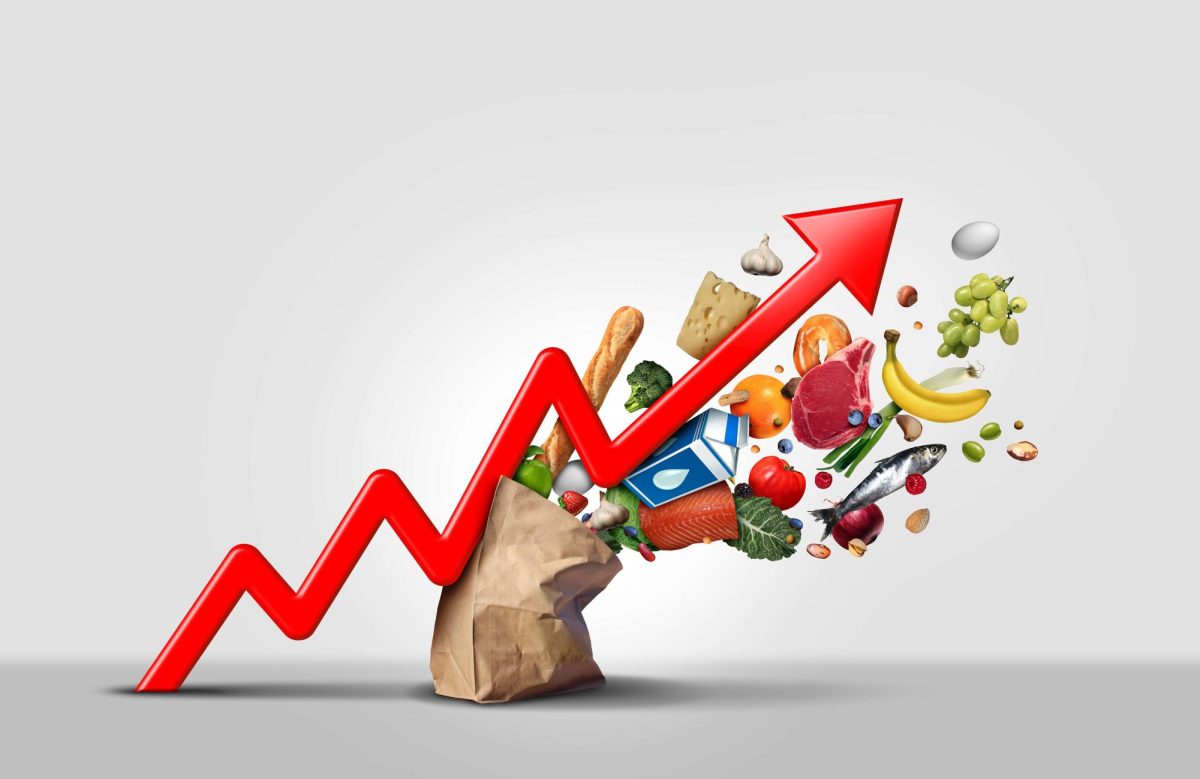*This article was written before Donald J. Trump won the election
As the final days before the election tick away, America has found itself in a tense standoff between its two major political parties. The polls are essentially tied, and the general consensus is that it’s anybody’s game. Both candidates are seen as the polar opposite of each other regarding numerous controversial issues that have split the nation in half.
They have vocally renounced one another, and their collective parties have been clashing for months. But there is one topic the country and its candidates unanimously agree on. The maximum stagnation or decrease of inflation, preferably the latter. But why? What is inflation, exactly? What causes it? And what are its effects on the country, and globe as a whole?
Per Oxford Dictionary, inflation is, “A general increase in prices in an economy and consequent fall in the purchasing value of money.” Basically, inflation is when prices on certain markets increase over a given set of time. For example, if a pack of bananas has the average cost of $5.99 in January, and by next January it’s $7.99, then that’s inflation. Inflation also devalues a currency, because if it rises substantially, it means that one’s salary and savings may struggle to pay for the rising prices, eroding their own purchasing power. Deflation is when a price on a certain market goes down, meaning that one could more easily afford certain goods.
Inflation is typically used to measure the average cost of living for citizens of a particular country. A variety of government agencies, like The U.S Department of Labor, measure domestic inflation. They do this by conducting regular inspections of prices of goods and services. They then release monthly, quarterly, and annual reports of inflation. Averaging all the costs on what they see as essential services and goods, they then produce a general cost of living for everyday Americans.
Causes for inflation tend to vary greatly because no product is the same. However, there are a few general factors. For one, fruits and vegetables are afflicted by things like spoilage(going bad). In fact, a shocking 60% of fruits and vegetables are thought to be wasted every year before they can be sold. Because of this, the companies distributing these products must compensate for the premature losses by upping the price of the remaining goods, leading to inflation. The same issue also plagues the meat industry, contributing to record high beef prices. Going back to the fruit and meat produce industry, natural events also influence inflation. Droughts reduce soil quality, leading to poor plant productivity, and lower cattle growth. Human events, like wars, are also catalysts for inflation. Russia is the 2nd largest producer of crude oil, and its war with Ukraine has significantly strained global oil supplies, causing higher gas prices.
As long as the world continues to advance, one can expect inflation to always be a problem. Politicians will keep making promises to annihilate it, experts will try to predict it, and society will continue to worry. But perhaps issues like inflation are only a small tax to pay as the human race strives for new heights.








